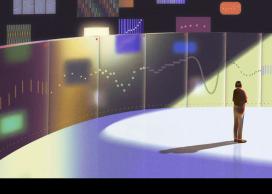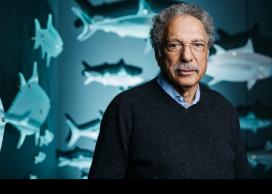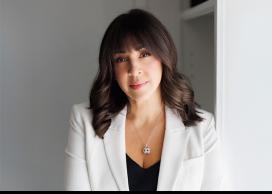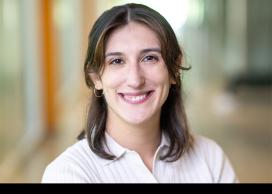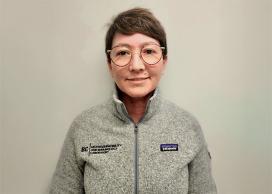Research in focus: Angela Andersen
Learn more about the work of our researchers at UBC
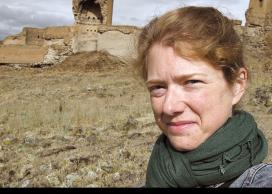
January 15, 2024
Name:
Angela Andersen
My pronouns:
she/her
Title:
Sessional Lecturer
Faculty/Department/Unit:
Creative Studies (Art History)
Location:
Okanagan
Year I started working at UBC:
2021
Provide an overview of your research in 75 words or less:
Members of Alevi spiritual lineages in the Turkish Republic include centuries of hymns and verse, pilgrimage sites and learned teachers as part of their heritage. However, Alevi communal ceremonial architecture (sometimes called the cemevi) has been limited by the state, as it is distinct from the mosques of Alevis’ Sunni Muslim neighbours. I assemble oral histories and study Alevi architecture by examining building techniques, regional history, and associated human rights issues.
What do you hope will change as a result of this research?
Issues like nationalist discourse or religious hegemony can marginalize scholars working on related research. Alevis, Kurds, Armenians, women and other researchers with specific knowledge are contributing to history, religious studies, art history and anthropology, yet may not get the grants, jobs, and book contracts due their skillful scholarship. By creating networks, inviting colleagues to speak with each other, and sharing support systems, we can make more space for all kinds of knowledge.
Are there any research collaborators you'd like to acknowledge and why?
Alevi interviewees often speak insightfully and at length about the issues that impact their places of worship. This is especially important when they have built the sites themselves or are responsible for maintaining them. I would like to acknowledge the Alevi communities I have met with across the Turkish Republic and in diaspora. The fieldwork site visits and interviews I have conducted for the past several years have only been possible because of Alevi people.
What have you learned during your research that has surprised you the most?
Early in my discussions with Alevis, I needed to expand my definition of architecture to include not only buildings and sacred places, but also the people themselves. A cemevi is largely given meaning by the teachings of the assembled community, so there is no specific type of building that can be easily identified using external symbols and decoration. Architecture is connected to communities, not the other way around– this is a challenge in architectural research!
Should we continue to support humanities research and fieldwork?
Everything from vaccine development to honouring the Truth and Reconciliation Calls to Action depends on learning people’s stories. Humanities fields might seem like a luxury that we can’t afford, but this is a loss that will make us less able to think critically about the different perspectives we encounter. We all benefit from seeing what a world shaped by smart, creative people can be, and considering what kinds of questions we should ask moving forward.
- Our people
- Research
- Research in focus


